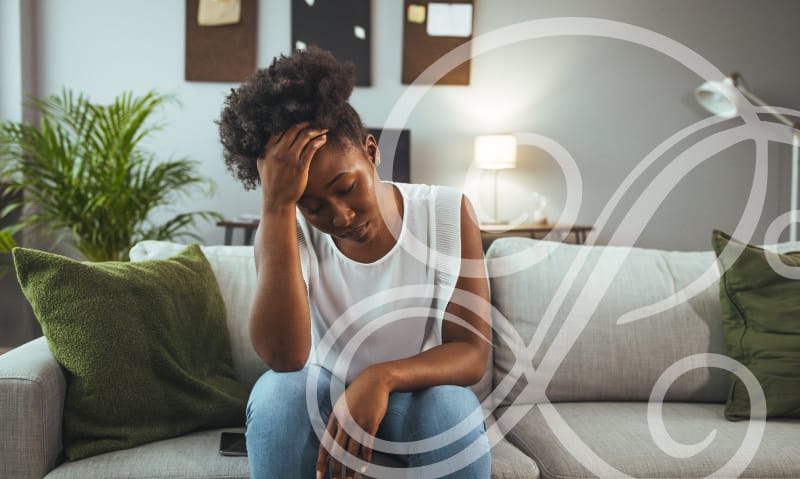Don’t Suffer From Sleep Apnea Any Longer

Warning Signs of Sleep Apnea
Do you find yourself constantly snoring, jolting awake at night, or facing exhaustion throughout the day? You could be suffering from sleep apnea. Sleep apnea is a condition where the airway becomes restricted during sleep, causing you to stop breathing and wake suddenly. It can keep you from getting a good night’s sleep, but there are many treatments available today, including some through your dental home in Austin, Texas.
Risk Factors for Sleep Apnea
There are two main types of sleep apnea: central and obstructive. Central sleep apnea occurs when respiratory muscles fail to activate or the brain fails to ask the respiratory muscles to activate. On the other hand, obstructive sleep apnea is caused by the relaxation of the muscles in the back of your throat. It’s also the kind of sleep apnea that dental interventions like oral appliances can help resolve.
Obstructive sleep apnea can become a problem due to a variety of causes. There are also many risk factors that can increase your chances of developing sleep apnea at some point in your life.
Age is one major risk factor, with older adults much more likely to suffer from sleep apnea. Men are also more likely to develop it than women. Your family history is another good indicator of your risk.
Smoking drastically increases the risk of developing sleep apnea due to the inflammation and fluid retention that it causes. Obesity also increases sleep apnea risk because fat deposits around the upper airway can lead to obstruction.
Various medical conditions can contribute to the risk of sleep apnea as well. Conditions like high blood pressure, type 2 diabetes, and congestive heart failure can all increase risk. Other conditions like chronic lung diseases, hormonal disorders, and Parkinson’s disease can also play a role.
The Dangers of Sleep Apnea
Patients with this condition risk developing many different complications. While many people associate snoring with sleep apnea, the fact is that the severity of symptoms and associated issues that occur as a result of sleep apnea can be far more impactful than mere snoring.
Daytime fatigue is among the most common issues that result from sleep apnea. Without quality sleep, individuals can suffer from drowsiness and fatigue throughout the day. This affects their quality of life while also increasing the risk of incidents like car accidents.
When sleep apnea causes breathing to stop, it also leads to a sudden drop in blood oxygen levels. This causes the body to react by increasing blood pressure, which puts additional strain on the cardiovascular system. This increases the risk of a variety of complications, including hypertension, heart attack, and stroke.
Sleep apnea has also been known to cause complications during surgeries requiring anesthesia. This is due to the breathing problems associated with sleep apnea, which increase the risk of major surgery going wrong. A variety of medications that cause relaxation or sedation can also interact negatively with sleep apnea.
Sleep apnea can also have consequences for your oral health. The condition can cause dry mouth, or insufficient saliva production. This creates an environment where bacteria can grow more freely, which can lead to gum disease in the long run.
What You Can Do About Sleep Apnea Today
In many cases, the best strategy for dealing with sleep apnea is to make lifestyle changes that mitigate your risk factors. Losing weight, quitting smoking, and other positive changes can reduce the impact of sleep apnea.
If you believe you’re suffering from sleep apnea, you’ll have to get a confirmed diagnosis in order to receive treatment. The traditional method is to spend the night at a hospital or clinic for a supervised sleep study. But today, you may be able to opt for an at-home test to avoid this inconvenience while still finding out if you’re dealing with sleep apnea.
If you are suffering from sleep apnea, then there are a variety of treatment options available today. One of the most common treatments is continuous positive airway pressure (CPAP). This treatment requires the patient to wear a mask over their nose as they sleep, providing constant air pressure to prevent the airway from closing.
Thankfully, your dentist can treat many cases of obstructive sleep apnea with oral appliances. These are similar to mouth guards for sports or for grinding teeth. They hold your jaw in such a position that your throat muscles won’t relax and obstruct your airway.
Family Dentistry in Austin, Texas, for Sleep Apnea
If you’re dealing with the symptoms of sleep apnea, you can reach out to Parmer Lane Family Dentistry to find out what your sleep apnea treatment options are. We provide testing kits for convenient initial screening and, upon official diagnosis, can create custom oral appliances to treat sleep apnea. You can schedule an evaluation today to find out more.